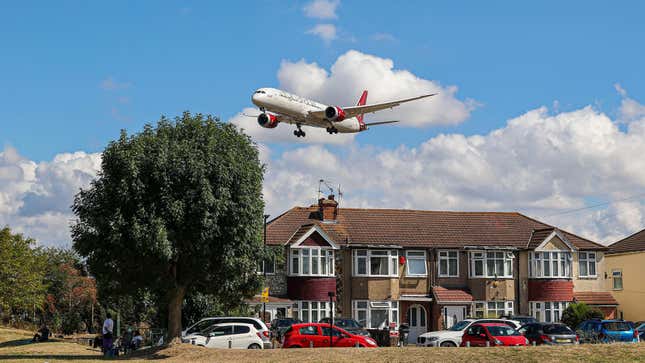
Virgin Atlantic is set to operate the first transatlantic flight to be powered entirely on sustainable aviation fuel (SAF) tomorrow. The New York to London flight has been years in the making and will offer a glimpse into the future of passenger airlines. The milestone service has also brought attention to the hurdles that commercial aviation faces to reaching truly zero-emissions operations, like having large enough SAF supplies for an entire airline fleet to use.
The Virgin Atlantic Boeing 787 Dreamliner that will take off from John F. Kennedy International Airport received specially permission from the American, British, Canadian and Irish governments to fly using SAF, according to Reuters. Regulations currently allow airliners to fly with a fuel mix consisting of 50-percent SAF at most. The British carrier hopes its 100-percent SAF flight could ignite a government push to encourage more regulatory leeway and more fuel production. Virgin Altantic CEO Shai Weiss said in a statement:
“Alongside fleet transformation, SAF is the most readily available way for our industry to decarbonise, but currently there’s not enough supply and without it and the radical collaboration required to produce it, we can’t meet our 2030 targets. We need UK government support to create a UK SAF industry to allow for every single flight out of the UK to operate with 100% SAF – if we make it, we can fly it.”
SAF is an easy and attractive solution to rapidly decrease the environmental impact of commercial flights. However, the sustainable fuel can cost up to five times more than conventional Jet A1 fuel, and its small supply can’t be utilized by the entire industry.
Simply making more sustainable fuel is its own dilemma. Virgin Atlantic’s flight will use SAF produced from used cooking oil and corn-derived kerosene, and there isn’t enough used cooking oil on Earth to scale up for industry-wide use. Agriculture-based biofuel production is banned in the United Kingdom and the European Union to protect domestic food supply, according to i. While not as glamorous as an experimental milestone flight, aviation’s zero-emissions future hinges on synthetic fuel research and development.

